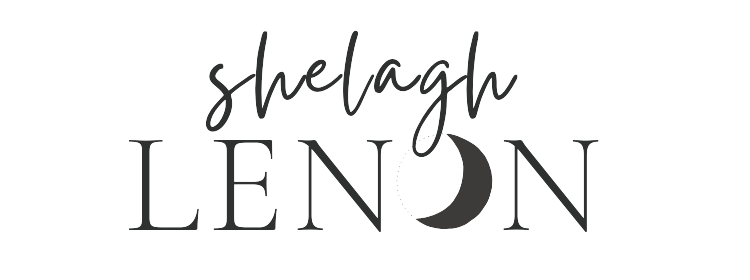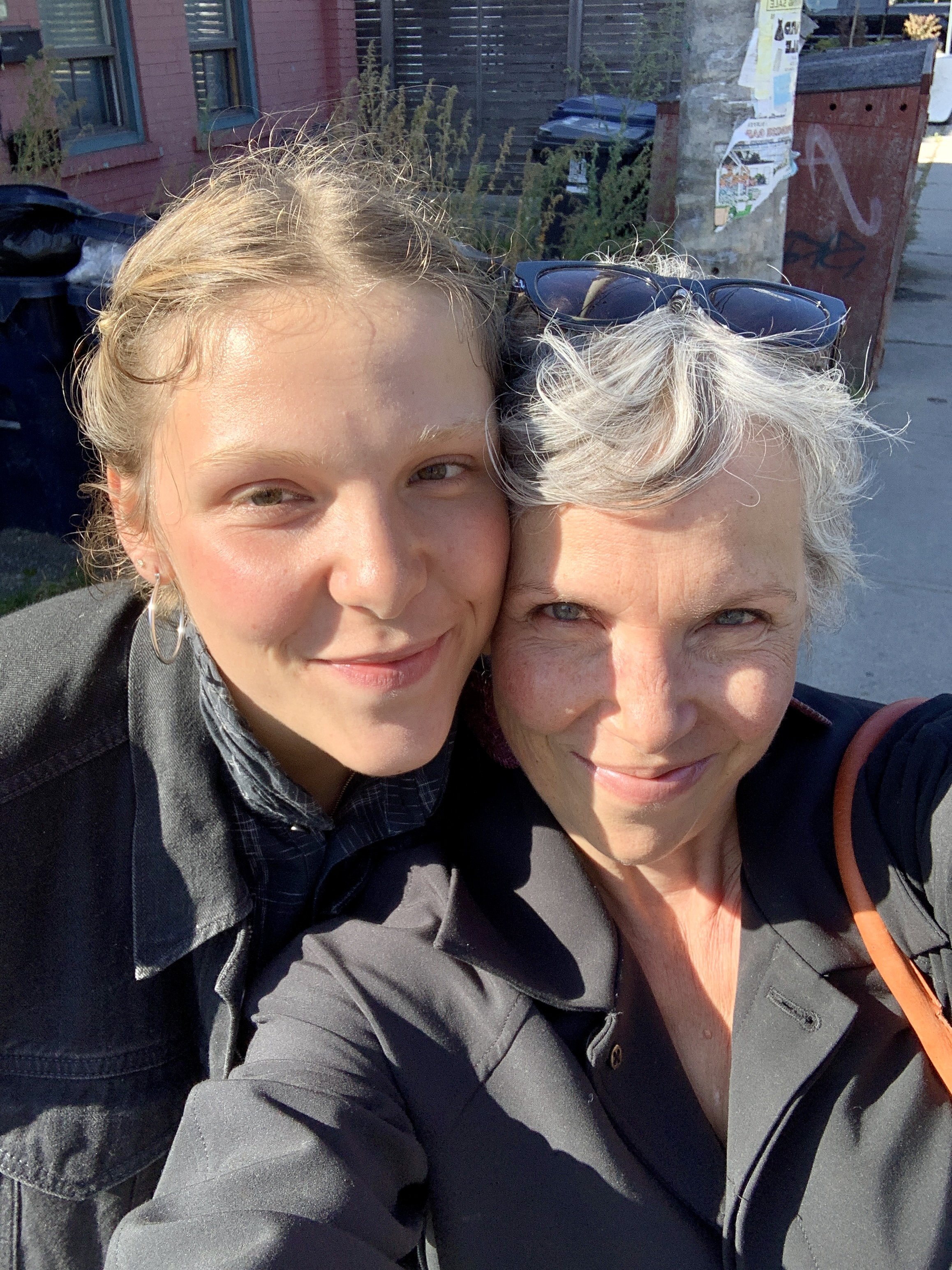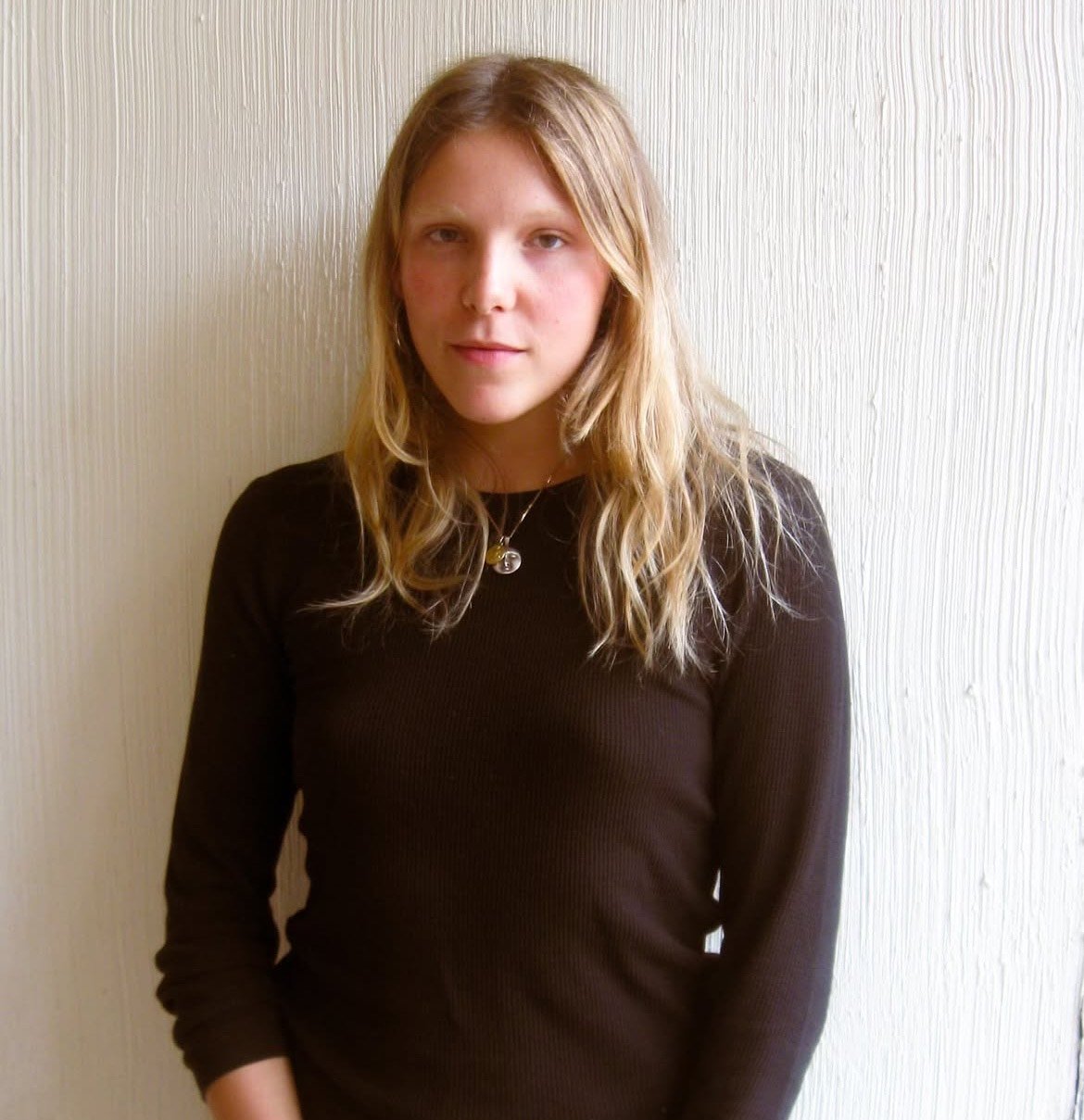Talking with my daughter about pleasure
A deeply pleasurable moment with my daughter Gracie, October 2024
This year I'm diving deep into a single word: pleasure
For me, pleasure is a powerful way to connect with myself, with my body, and with the whole of life. I believe that for women, especially at midlife, pleasure isn't just important. It's revolutionary
As our bodies and hormones change during this stage of life, creating space for pleasure can be a powerful way to boost our resilience, reduce stress, and improve our overall well-being.
To be honest, pleasure hasn't always come easy for me. And it doesn't come easy for a lot of women.
Our patriarchal culture has conditioned us to prioritize productivity, caregiving and self-sacrifice over our own joy, over our own pleasure, often framing pleasure as frivolous, or even shameful.
And this system benefits from keeping women overworked and disconnected from our bodies. We become too busy really to claim the fullness and the beauty of our lives.
I believe that by reclaiming pleasure we're not just nourishing ourselves, we're actively resisting a system that seeks to diminish our power and wholeness.
So, pleasure in this sense becomes a radical act.
This year I’m taking pleasure in exploring pleasure – what it means, how we cultivate it, and how it can transform our lives.
I’m starting this exploration with a conversation on pleasure with my 23-year-old daughter Gracie.
Gracie is a conceptual artist working with mediums that are felt physically. She recently moved to Berlin with her partner to begin an artist residency. She works both alone and as an artist duo under the name Drinkmilk.
Gracie's art explores the body. As her mama, this feels so fitting. She was a child who loved the mud, who dove headfirst into messes, and who found joy in every sensory experience. She's carried that sense of embodiment into her work as an artist.
When I asked her for a short bio, she replied with this sentence: I am nothing, and I still feel beautiful.
I hope you enjoy the conversation.
The conversation starts here
Shelagh: How would you define pleasure?
Gracie: When I think of pleasure, the first thing I think of would be the physical. Obviously.
But I think that accessing pleasure has to be aligned with your mindset. I would say that it's a unanimous feeling between your head and your heart and your gut.
And it's an embodied feeling. You're feeling the sense of pleasure as a thought, as an intuition and as a simple emotion. But I would say that there has to be a unanimous feeling between all of them, or else it's not truly a felt pleasure.
Shelagh: Can you give me an example of when you would have that experience of pleasure?
Gracie: I mean, there's so many things. Do you want like an exact moment?
Shelagh: Sure. Yeah.
Gracie: Okay, for example, for me, the first time my bare feet get to touch grass after a winter is like an insane source of pleasure, like the feeling of having your feet on grass, and it's not like frozen grass. It's completely thawed grass and within that there’s like the intuition of wanting to step onto the grass, the felt feeling of being on the grass, and then the knowing and processing of how you are feeling and what you are sensing. So that would be a moment where I feel that unanimous sensation throughout those three sources in my body.
Shelagh: That's beautiful. I haven't actually thought about pleasure like that. That it’s the uniting of the heart, the intuition, and the mind. Do you think that our own cultural understanding of pleasure is too narrow?
Gracie: Yeah, definitely! This is something that we've been working on in our art recently - the hyper-sexualization of my generation, in particular.
Shelagh: Yes, tell me more.
Gracie: I think that often the word pleasure isn't associated with non-sexual things.
The narrative around pleasure is that it's about having sex or like about an orgasm. But it is about so much more. You can access pleasure in so many other ways.
So, I think it is very narrow minded, and I think that it's hard for people to talk about pleasure because of that…even though it's such a fruitful word. It's a word that means so many things. And it's completely…I mean, obviously, related to sexual desires, but it's also completely unrelated, you know.
Shelagh: What I hear you saying is that it's so much broader than that.
Gracie: Yeah, absolutely.
Shelagh: Our culture sometimes equates pleasure only with sexual pleasure, but what I hear you saying is that it's so much more.
Gracie: Yeah, the word has an explicitness to it that is unnecessary.
Shelagh: Would you say that your experience of pleasure is one of homecoming…like coming home to your body?
Gracie: Yeah, I would say so…I don't know. Because I feel like pleasure is very much a giving and a taking. So, I think that it's coming home to myself. But it's also a giving of myself to something. I think there's an exchange within it.
It is like coming home to myself. But it's also like, how am I giving myself up to something else, you know?
Shelagh: Yeah. Oh, gosh, I love that.
Gracie: Yeah.
Shelagh: Going back to how you described your feet on the grass…What I hear you saying is that there's this reciprocal relationship between the grass and you. Is that what you're saying?
Gracie: Yeah, yeah, totally. I think in any moment where you're being given such an intense feeling of like, you're feeling just so good. It's also like, Okay, how am I getting this? And how am I going to give to the thing that is bringing me this source of pleasure?
So, you know, with my feet on the grass, I think about the earth and how that's affecting me. Or for me, like God or a spiritual entity, and how this is a creation and how I'm a part of that, you know.
And how do I give to that within this energy source of pleasure? You know, it's more of an exchange than just like I'm taking this sensation.
Shelagh: Right! When you were expressing that I was wondering if pleasure and gratitude are companions.
Gracie: Oh, a hundred percent. Yeah, yeah. I've been recently thinking about grief as a source of pleasure and gratitude.
Shelagh: Hmm.
Gracie: In an abstract way, because obviously, grief is hard. It's a word that's associated with something that is hard. But grief is also the process of letting go a release….a moving on. And I think that that is an extreme source of pleasure to a certain degree.
And same with gratitude. I'm thinking of these three words as a trio right now in my writing a lot.
Shelagh: What are some of your earliest memories of pleasure?
Gracie: Anytime when I was a kid and I played in mud. I remember, it felt so good, and to like, get really messy and like put mud all over my hands. I remember me and Evelina, my next-door neighbor playing with mud this one time. We covered our feet and hands in it, and it just felt so good to be so dirty. I think I've always felt that way.
I think that love is obviously associated with pleasure. As a kid, I remember experiencing that intense feeling in your heart for the first time - just like knowing that you love someone so strongly like my parents and my brother, you know, like that feeling it's like, Oh, my God! I am so happy! Like to be home with my family, and I'm just so happy to be playing with my brother, and that's as a kid, obviously like that's pleasure.
Shelagh: Yes!
Gracie: And then throughout my life there's been ebbs and flows in it.
As a teen you start to get swept up into like the other world of it, so like the sexual aspect of it.
When I was in high school, I thought that the word was kind of all about sex.
There's a closed off-ness about it. I think the closed off-ness with using the word even to describe anything creates a closed off-ness in your ability to experience it fully.
Shelagh: Oh! Interesting.
Gracie: And I think, when I was a teen, I wasn't in a pleasureful place in my life.
Shelagh: Hmm.
Gracie: I have grown into the word and deepened my understanding, and also surrounding myself with people who view the word in a similar way is very helpful.
Shelagh: I remember one of the things I really wanted to impart to you as your mama was that sex was a pleasurable experience and that your pleasure mattered.
Gracie: Oh, I think that definitely was never something that I was unaware of. Both you and papa were very good at being open about that. You were both very loving to each other throughout our upbringing. So I think I was aware of that, but I think that it's just…I don't want to say inevitable, but kind of inevitable, given just the way in which I feel like my generation operates particularly.
I think even though I was raised by a super feminist mom, you know, it's still hard as a teen to not feel the pressure of your position as a woman, especially in sexual interactions.
You know, that still very much exists today, just the feeling of being more subservient, or the feeling of it being more about the guy or like, it only matters if he comes first…or what instigates the end of sex is when he comes.
As a teen, that's kind of just how it is. And even though you know that it's wrong, what are you going to do to fight it, you know, because you're 16 or 17.
Shelagh: Right.
Gracie: Yeah. And then hopefully, the older you get, you start to realize that it doesn't have to be that way.
Shelagh: Thank you for being so open in sharing about this.
Gracie: Of course.
Shelagh: Is there a moment when embracing pleasure or turning to pleasure transformed how you were experiencing a challenge in your life?
Gracie: Hmm. I think there's a couple of different things where I feel like pleasure has helped me.
I think a big source of pleasure for me is dancing. There’s been phases in my life when I've gone out three times every weekend to go dance, and it's exhausting. But I think in the moment you feel so good.
I think also like there's been phases where I've gone to church a lot or have been like really immersed in a spiritual routine.
It varies throughout my life, but I think for me in the times when I've gone to church often it's been an immense source of pleasure.
And what I like about that is that the word pleasure is not commonly associated with church or religion, or anything of that matter, but I think it is.
I was recently in an art gallery in Italy. And there was this painting of Mary Magdalene. I've never seen this painting before in my life. I don't remember the name of the artist. She was depicted barefoot in grass with this giant fur coat. She looked so wild and was just tenderly standing on grass.
I looked at it for a really long time. Luke, my partner, was with me and we were both in awe of it. It really made me think about this pleasureful moment for this person – Mary Magdalene - who has also been depicted so negatively by the church.
I vividly remember with one of my first boyfriends, it was the first time where I felt like I had actually had sex that was meaningful and quite good. I was like, Oh, this is like what good sex is actually supposed to be like. And that was super freeing to experience and understand the way that it flows and can flow with someone that you love, and someone that is giving and taking, and you know. And so that was a very freeing moment to experience.
Shelagh: Mmmm…..
Gracie: I think those are my top three.
Shelagh: Thank you for sharing those.
Gracie: Yeah.
Shelagh: Is there anything that you feel you've learned about yourself and pleasure in the last in the past year?
Gracie: I think I've really notice the subtlety to feeling pleasure in a different way than I ever have before.
Shelagh: Hmm.
Gracie: Yeah, like, the most recent thing that I've been writing about is seeing my partner's just eyelids shut, and the way his eyelashes look on his shut eyes. That right now is an immense source of pleasure for me to just see his eyes shut. Which is incredible!
I think when you start allowing yourself to find these really subtle things, they happen a lot.
I think that I've been very open to like micro-sources of pleasure.
Shelagh: Wow.
Gracie: I think a lot of that aligns with gratitude and really making sure to have a deep practice of reminding yourself what you're grateful for and reminding yourself of all the things that you love in life.
I think then, when you remind yourself of those things, you realize how much of all those things are a source of pleasure.
It’s so easy to forget. It sounds like such a simple thing, but it's so easy to forget. But yeah, I think I have accessed a newfound level of microscopic pleasures.
And expressing it, too.
Shelagh: I love that…microscopic pleasures.
I completely agree, and it feels like that's a thread that takes us back to the beginning of our conversation…where we were, you know, wondering if pleasure and gratitude were companions.
I’d love to end our conversation by asking you to share about microscopic pleasures that you've recently experienced.
What sight has brought you pleasure recently?
Gracie: Seeing pictures of my father when he was like ages 7 to 17.
I felt pleasure from that from that sight, deep pleasure.
Shelagh: What about a smell that's brought you pleasure recently?
Gracie: The smell of mildew has recently brought me pleasure.
Shelagh: What about a taste?
Gracie: Goose meat.
Shelagh: A sound?
Gracie: Oh, probably your voice, mama, your voice right now. That's a micro pleasure.
Shelagh: And touch or sensation?
Gracie: There’s this red sand where I am right now, and I touched it today. It felt really good. It's like a mud sand.
Shelagh: Thank you, Gracie. As we come to the end of this conversation, is there anything else that you haven't expressed yet about your relationship with pleasure?
Gracie: For me the biggest thing in being able to allow so much pleasure into my life, is being open to it also being taken from me. I think that is just the biggest lesson that I've learned.
It’s to view pleasure as a giving and a receiving.
Shelagh: Mmmmm. Thank you for this conversation, Gracie. I so appreciate you.


